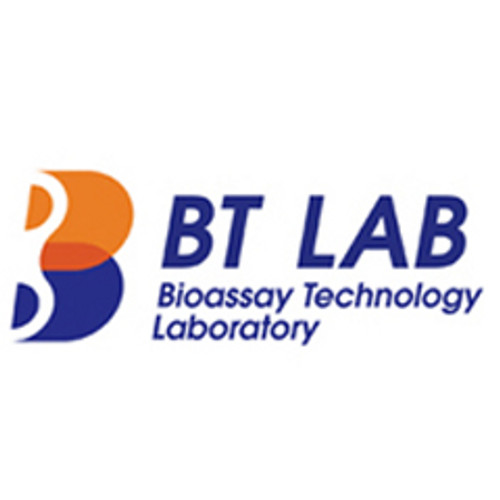Product Description
Mouse Angiotensinogen (AGT) ELISA Kit | AE24309MO | Abebio
Species Reactivity: Mouse (Mus musculus)
Abbreviation: AGT
Alternative Name: ANHU; FLJ92595; FLJ97926; SERPINA8; alpha-1 antiproteinase; antitrypsin|angiotensin I|angiotensin II|angiotensinogen|pre-angiotensinogen|serine (or cysteine) proteinase inhibitor
Application: ELISA
Range: 0.625-40 ng/mL
Sensitivity: 0.264 ng/mL
Intra-Assay: ≤5.1%
Inter-Assay: ≤10.2%
Recovery: 0, 92
Sample Type: Serum, Plasma, Other biological fluids
Detection Method: Sandwich
Analysis Method : Quantitive
Test Principale: This assay employs a two-site sandwich ELISA to quantitate AGT in samples. An antibody specific for AGT has been pre-coated onto a microplate. Standards and samples are pipetted into the wells and anyAGT present is bound by the immobilized antibody. After removing any unbound substances, a biotin-conjugated antibody specific for AGT is added to the wells. After washing, Streptavidin conjugated Horseradish Peroxidase (HRP) is added to the wells. Following a wash to remove any unbound avidin-enzyme reagent, a substrate solution is added to the wells and color develops in proportion to the amount of AGT bound in the initial step. The color development is stopped and the intensity of the color is measured.
Product Overview: Angiotensinogen is an α-2-globulin that is produced constitutively and released into the circulation mainly by the liver. It is a member of the serpin family, although it is not known to inhibit other enzymes, unlike most serpins. Plasma angiotensinogen levels are increased by plasma corticosteroid, estrogen, thyroid hormone, and angiotensin II levels. Angiotensin is formed from a precursor, angiotensinogen, which is produced by the liver and found in the alpha-globulin fraction of plasma. The lowering of blood pressure is a stimulus to secretion of renin by the kidney into the blood. Renin cleaves from angiotensinogen a terminal decapeptide, angiotensin I. This is further altered by the enzymatic removal of a dipeptide to form angiotensin II.
Stability: The stability of ELISA kit is determined by the loss rate of activity. The loss rate of this kit is less than 5% within the expiration date under appropriate storage condition. The loss rate was determined by accelerated thermal degradation test. Keep the kit at 37°C for 4 and 7 days, and compare O.D.values of the kit kept at 37°C with that of at recommended temperature. (referring from China Biological Products Standard, which was calculated by the Arrhenius equation. For ELISA kit, 4 days storage at 37°C can be considered as 6 months at 2 - 8°C, which means 7 days at 37°C equaling 12 months at 2 - 8°C) .
 Euro
Euro
 USD
USD
 British Pound
British Pound
 NULL
NULL








